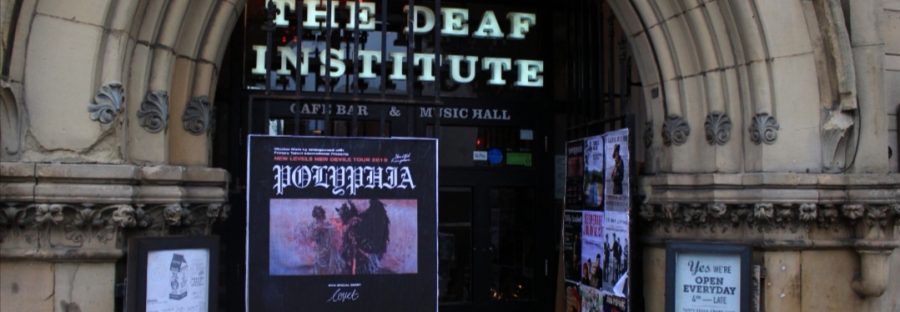Coronavirus: will it be the end to the grassroot venues and the bands we see today?
- Interview and podcast looking at whether venues will survive following covid-19
It’s a common occurrence right now around the world to see venues failing, closing and cities losing more and more culture.
For Manchester, music is built into the Mancunians DNA, from The Stone Roses to Oasis, they never disappoint.
But with recent events, coronavirus has forced many to ‘look back in anger’ not knowing what will happen to their favourite venues. Let’s look back at the start of the pandemic, no one knew what would happen,
Gorilla and Deaf Institute were the first to go, but following the news were saved by Tokyo Industries, leaving many music lovers feeling less pessimistic about the future.
But where does the pandemic leave the rest of the venues across Manchester?
The #saveourvenue campaign was announced across the whole country, supporting 670 independent UK venues, hoping to stop the imminent risk of closure. Grassroots venues such as The Deaf Institute for years have introduced artists which go on to make a difference.
Dylan Cartlidge played Band on the Wall (a venue at risk of closure) in 2018. That was a cornerstone gig for him, a lot of people turned up and two years later, he’s broken into the US mainstream charts. Would artists make fame without the grassroots venues we have today?
Would local bands grow and would they have the opportunities to become the next band without grassroots venues?

James Johnston, 22, lead bassist in Thin-Skinned, said: “The Deaf Institute and Gorilla are two good examples of venues that bridge that gap between a local band without a massive following and a well-known household name.
“I went to see Leon Bridges play at Academy in MCR a couple of years ago and he said his first gig in Manchester was at the Deaf Institute. Now he’s a global star so clearly, it’s a significant venue that gives rise to some important names in music.”
In August it was announced that 11 venues have been given a lifeline with funds being donated from the Art Council England Emergency Grassroots Music Venue Funds hoping to prevent the downfall of the companies due to the pandemic.
In Manchester venues such as Soup Kitchen, The Peer Hat, Retro Bar, Off the Square, Night People, Jimmy’s NQ, Gorilla and The Deaf Institute have received grants up to the value of £41,000. But the short-term solution isn’t going to save many venues looking at the long term issues they face.
The #saveourvenues campaign aimed to raise £1,500,000, and £1,224,006 has been raised already.
Many artists have taken it into their own hands already with The Arctic Monkeys raffling off a guitar where all funds go towards saving the UK grassroots venues raising £126,000.
Unlike Gorilla and The Deaf Institute, many venues aren’t able to be bought out and don’t have that lifeline that opportunists like the Tokyo industry took buying these venues.

James said: “Grassroots venues become like a domino effect for grassroots artists. Tthe more of them you play, the more credibility you start to pick up.
“They offer a huge amount of networking opportunities to find other band members, other gigging opportunities.
“Gigging in grassroots venues is a chance to sell your first merch.
“A lot of A&R representatives of smaller labels look to grassroots venues for new artists to potentially sign, it helps spread your music to friends of friends which leads to friends of friends of friends and so on and so on.”
If venues do close, he believes bands with a higher income background will have more opportunities, saying: “That gap is already vast and solidly cemented in A&R culture and its system of signing artists to labels.
“Smaller, less wealthy artists, would have to rely on the reach from social media and digital streaming services like Spotify and Apple music and they wouldn’t be able to pay £10, £20, £50, £100 etc to boost their social media posts for more exposure to their streaming sites and their websites where their merch is.
“They would have to work overtime on creative ideas for reaching new audience members while the rich kids rake in the streams through being able to pay for boosting social media posts and having friends in high placing.
“Smaller artists won’t be able to catch the eye of an A&R representative of a label like Rough Trade with a brilliant live performance if they’re regularly gigging because there are no smaller venues.”
He added: “In the UK, the music industry made up about 5bn of the UK economy and a fifth of that was the live industry.
“I think it’s important for central government to treat the music industry the same way they’ve treated the food and drinks industry because it is just as important for generating jobs and pumping money into the economy.
“As a local band, we rely on these venues and these venues are a part of our livelihoods, culture and social lives as young people.”
In the UK venues are worried and the effects it has on communities and bands is worrying for all. Below you’ll find a podcast where I sat down with an MMU lecture and a music Producer who both gave their opinions on the effects coronavirus has had on bands and also how it will affect the music industry and venues.


